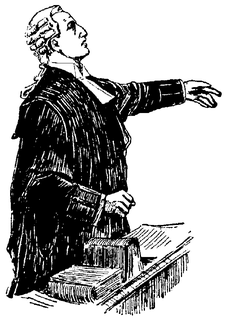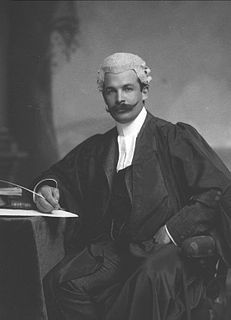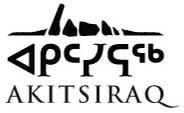
A barrister is a type of lawyer in common law jurisdictions. Barristers mostly specialise in courtroom advocacy and litigation. Their tasks include taking cases in superior courts and tribunals, drafting legal pleadings, researching the philosophy, hypothesis and history of law, and giving expert legal opinions. Often, barristers are also recognised as legal scholars.

A lawyer or attorney is a person who practices law, as an advocate, attorney, attorney at law, barrister, barrister-at-law, bar-at-law, civil law notary, counsel, counselor, counsellor, counselor at law, solicitor, chartered legal executive, or public servant preparing, interpreting and applying law, but not as a paralegal or charter executive secretary. Working as a lawyer involves the practical application of abstract legal theories and knowledge to solve specific individualized problems, or to advance the interests of those who hire lawyers to perform legal services.
In its most general sense, the practice of law involves giving legal advice to clients, drafting legal documents for clients, and representing clients in legal negotiations and court proceedings such as lawsuits, and is applied to the professional services of a lawyer or attorney at law, barrister, solicitor, or civil law notary. However, there is a substantial amount of overlap between the practice of law and various other professions where clients are represented by agents. These professions include real estate, banking, accounting, and insurance. Moreover, a growing number of legal document assistants (LDAs) are offering services which have traditionally been offered only by lawyers and their employee paralegals. Many documents may now be created by computer-assisted drafting libraries, where the clients are asked a series of questions that are posed by the software in order to construct the legal documents.

A Queen's Counsel, or King's Counsel during the reign of a king, is an eminent lawyer who is appointed by the monarch to be one of "Her Majesty's Counsel learned in the law." The term is recognised as an honorific. The position exists in some Commonwealth jurisdictions around the world, but other Commonwealth countries have either abolished the position, or re-named it to eliminate monarchical connotations, such as "Senior Counsel" or "Senior Advocate". Queen's Counsel is an office, conferred by the Crown, that is recognised by courts. Members have the privilege of sitting within the bar of court.
A law society is an association of lawyers with a regulatory role that includes the right to supervise the training, qualifications, and conduct of lawyers. Where there is a distinction between barristers and solicitors, solicitors are regulated by the law societies and barristers by a separate bar council.
A paralegal is an individual who is employed or retained by a lawyer, law office, corporation, governmental agency, or other entity and who performs specifically delegated substantive legal work for which a lawyer is responsible. Paralegals perform tasks requiring knowledge of the law and legal procedures, but the exact nature of their work and limitations that the law places on the tasks they are allowed to undertake vary between nations and jurisdictions. A paralegal is not a lawyer but is typically employed by a law office or internal legal department of a company; paralegals are typically not allowed to offer legal services independently in most jurisdictions. Paralegals operate under a form of independent legal ethics, but with few exceptions must also typically conduct their work under the formal supervision of an attorney. In some jurisdictions, paralegals can conduct their own business and are called Law Agents, providing services such as settlements, court filings, legal research and other auxiliary legal services; these tasks often have instructions from a solicitor attached.
The Law Society of Ontario is the law society responsible for the self-regulation of lawyers and paralegals in the Canadian province of Ontario. Founded in 1797 as The Law Society of Upper Canada, the society adopted its current name after a majority vote by its governing body in November 2017. The change was formalized on May 8, 2018 by amendment to provincial legislation.

The American Bar Association (ABA), founded August 21, 1878, is a voluntary bar association of lawyers and law students, which is not specific to any jurisdiction in the United States. The ABA's most important stated activities are the setting of academic standards for law schools, and the formulation of model ethical codes related to the legal profession. The ABA has 410,000 members. Its national headquarters are in Chicago, Illinois; it also maintains a significant branch office in Washington, D.C.

Akitsiraq Law School is a legal education program designed to increase the number of lawyers in Nunavut and the Canadian Arctic, including a program leading to a Bachelor of Laws Degree (LL.B) in Iqaluit, Nunavut.

The Law Society of Scotland is the professional governing body for Scottish solicitors. It promotes excellence among solicitors through the support and regulation of its members. It also promotes the interests of the public in relation to the profession. The Society helps to shape the law for the benefit of both the public and the profession.

An admission to practice law is acquired when a lawyer receives a license to practice law. In jurisdictions with two types of lawyer, as with barristers and solicitors, barristers must gain admission to the bar whereas for solicitors there are distinct practising certificates.
The Solicitors Regulation Authority (SRA) is the regulatory body for solicitors in England and Wales.

The Law Society of British Columbia is the regulatory body for lawyers in British Columbia, Canada.
The Law Society of Manitoba is the self-governing body for lawyers in Manitoba, Canada. Its mandate is to regulate the legal profession.
The Federation of Law Societies of Canada is the national coordinating body of Canada's 14 law societies.
Joan Brockman is a professor at Simon Fraser University in Burnaby, British Columbia. Her research and teaching concerns feminism and criminology. Brockman holds a Bachelor of Arts degree with Honours from the University of Saskatchewan, a Master of Arts from the University of Alberta, and took her L.L.B at the University of Calgary and her L.L.M at the University of British Columbia. She is a member of the Law Society of British Columbia and of the Law Society of Alberta. She is an advocate for gender equality within the legal profession.
Bullying in the legal profession is believed to be more common than in some other professions. It is believed that its adversarial, hierarchical tradition contributes towards this. Women, trainees and solicitors who have been qualified for five years or less are more impacted, as are ethnic minority lawyers and lesbian, gay and bisexual lawyers.
The Nova Scotia Barristers' Society is the statutory body charged with the regulation of the legal profession in the Canadian province of Nova Scotia.
The legal services sector of the United Kingdom is a significant part of the national economy; it had a total output of £22.6 billion in 2013, up from 10.6 billion in 2001, and is equivalent to 1.6% of the country's gross domestic product for that year. The sector has a trade surplus is £3.1 billion in 2013 and directly employees 316,000 people, two-thirds of whom are located outside London. The UK is the world’s most international market for legal services. It allows virtually unrestricted access for foreign firms, resulting in over 200 foreign law firms with offices in London and other cities in the UK. Around half of these are US firms, with the remainder mainly from Europe, Australia and Canada. The UK legal market has a strong global position due to the popularity of English law. Some 27% of the world's 320 legal jurisdictions use English Common law.

Women in law describes the role played by women in the legal profession and related occupations, which includes lawyers, paralegals, prosecutors, judges, legal scholars, law professors and law school deans.









